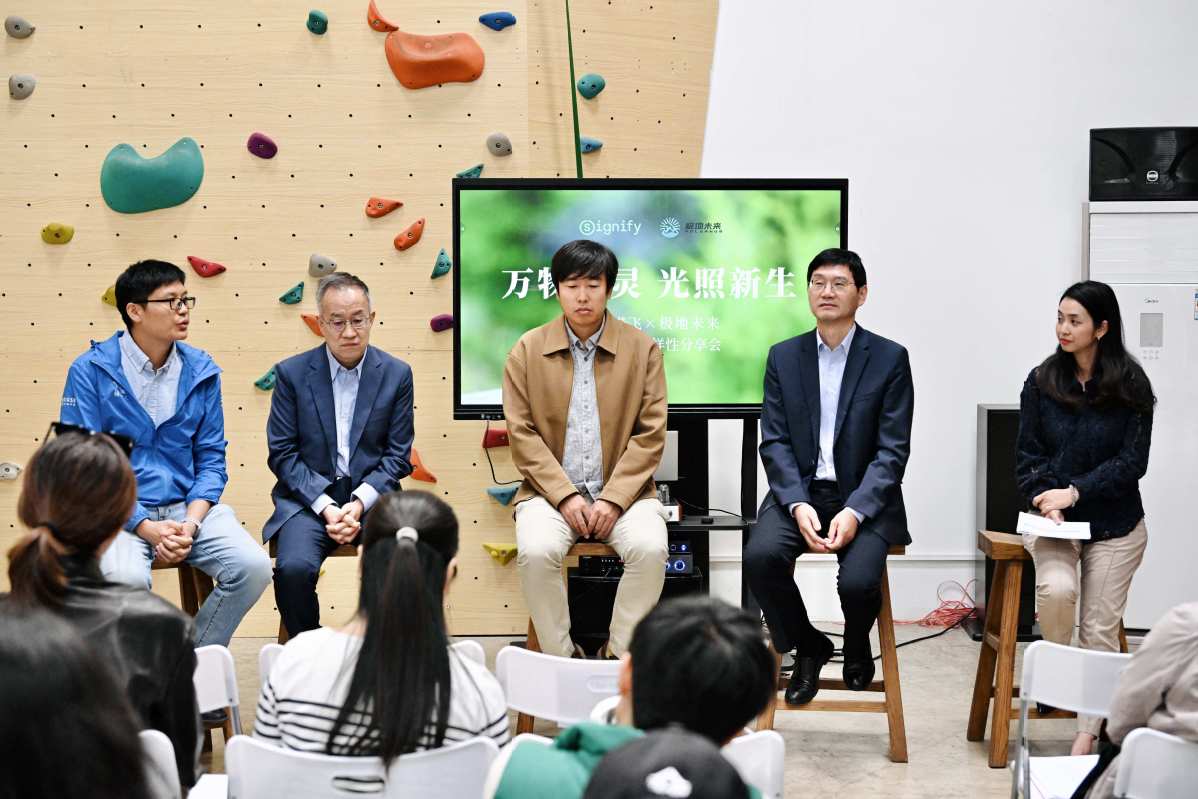
The Dutch lighting company Signify supported a scientific investigation project on biodiversity conservation in Southwestern China’s Yunnan province, as its latest effort to contribute to ecological protection in China.
Joining efforts from Chinese organizations, botanists and zoologists, the project conducted scientific research and popularized the relationship between light and biodiversity in the Yunnan Golden Monkey National Park and the Yunnan Baima Snow Mountain National Nature Reserve.
The project data obtained from the scientific investigation is expected to be used to help improve Signify’s exploration and research in the field of ecological lighting, create more lighting solutions that protect nature and biodiversity, and promote the development of the entire lighting industry toward a more scientific, sustainable direction, achieving the harmonious coexistence between humans and nature.
Yao Mengming, general manager of the Lighting Design and Application Department of Signify Greater China, said: “Artificial light affects biodiversity and natural ecological environment to varying degrees. How to use artificial light reasonably, fully utilize it to promote socio-economic development, and reduce its interference with the environment and biodiversity, is a topic that Signify has been constantly exploring.”
He noted that the company is well aware of the significance of biodiversity resources for the development of human civilization.
“We are committed to practicing green switch, or low-carbon lighting transformation, while paying attention to ecological protection, adhering to the concept of building a community with a shared future for humanity, creating more wealth for humanity and nature, and promoting the development of the entire lighting industry,” Yao said.
Lighting has a significant influence on the natural rhythm of animals and plants, and good use of light contributes to biodiversity conservation.
As Chen Rui, an expert in the Institute of Zoology at the Chinese Academy of Sciences set the example, the use of light and the introduction of new plants for a period of time can decrease the biodiversity in a certain region by 70 percent to 80 percent.
“Through the scientific research project, we hope to lift the veil of natural rhythms in the ecosystem, and arouse people’s awareness of biodiversity conservation,” said Hu Jiaojiao, co-founder of Tianjin-based Polar Hub, the public welfare organization that is responsible for the scientific investigation.
Industry experts called for efforts from all walks of life to pay attention to biodiversity conservation, a relatively frontier issue in the ESG (Environment, Social and Governance) path.
“While the public, enterprises and governments are paying attention to climate change and food security, biodiversity protection is gaining increasing attention. In the future, corporate disclosure on nature conservation is also expected to become a compulsory part,” said Yang Fangyi, senior program officer at the International Union for Conservation of Nature China Office.
